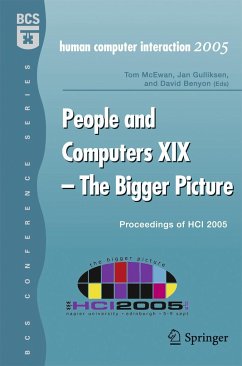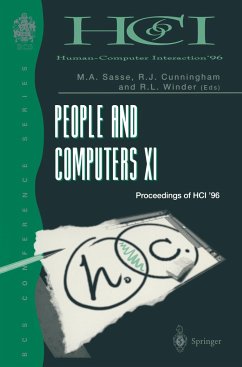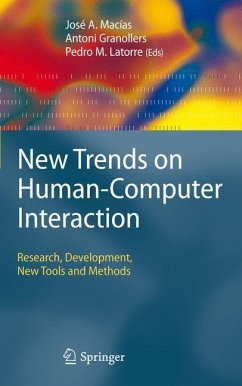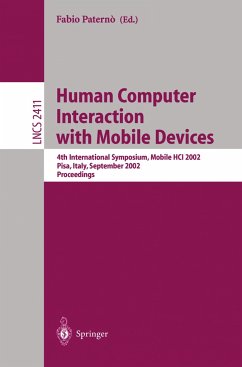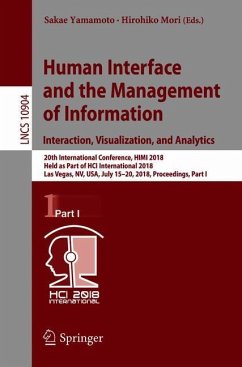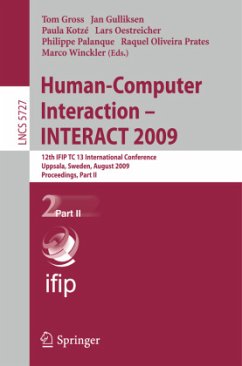
Engineering the User Interface
From Research to Practice
Herausgegeben: Redondo, Miguel; Bravo, Crescencio; Ortega, Manuel
Versandkostenfrei!
Versandfertig in 6-10 Tagen
113,99 €
inkl. MwSt.

PAYBACK Punkte
57 °P sammeln!
This book contains a collection of the best papers presented at the VII International Conference on Interacción Persona-Ordenador (IPO), a multidisciplinary forum for the discussion and dissemination of novelty research in Human-Computer Interaction. The main goal of Interacción 2006 was to expand the conference scope with internationally recognised invited speakers. Other goals such as enriching the relationship between industry and academia, and incorporating workshops and tutorials of quality to the conference structure were also achieved.
This book is organised according to the main areas of both basic and applied research that were presented at the conference. These areas were: Ergonomics and Human Factors, Ubiquitous Computing and Ambient Intelligence, User-Centred Design, Usability and Accessibility, Systems and Models for Collaboration, Interaction in Teaching and Learning, Design and Development of User Interfaces, Virtual and Augmented Reality, Interaction and People with Special Needs.
This book is organised according to the main areas of both basic and applied research that were presented at the conference. These areas were: Ergonomics and Human Factors, Ubiquitous Computing and Ambient Intelligence, User-Centred Design, Usability and Accessibility, Systems and Models for Collaboration, Interaction in Teaching and Learning, Design and Development of User Interfaces, Virtual and Augmented Reality, Interaction and People with Special Needs.
Digital Divide (DD) is a term that defines the division between people, commu- ties, states, countries, etc. with respect to the access to the new Information and Communication Technologies (ICTs). Nowadays, it is essential to have tech- logical skills to work in a variety of jobs (i. e. administration, education, etc. ). Moreover, ICTs have become ubiquitous and they affect almost every aspect of our daily life. The way in which people face the task of using ICTs varies depending on a plethora of variables. The most analysed ones are the technological literacy and the educational level. These are two very important factors that strongly affect the success of the individuals in accessing ICTs. Unfortunately, these are not the only variables to consider. Some people suffer from mental and physical disabilities that are real impediments to access ICTs, and they must be studied in detail. How can we help disabled people to access ICTs? Can public telecentres deal with this task? Canthe ICTs be used to improve the accessibility of disabled people? Which projects aim to reduce the digital divide? Are they addressed to disabled people? These are some of the questions that we will try to answer, at least partially, in this chapter. We believe that governments must invest to avert the DD, but they are not the only actors involved in this scenario.







